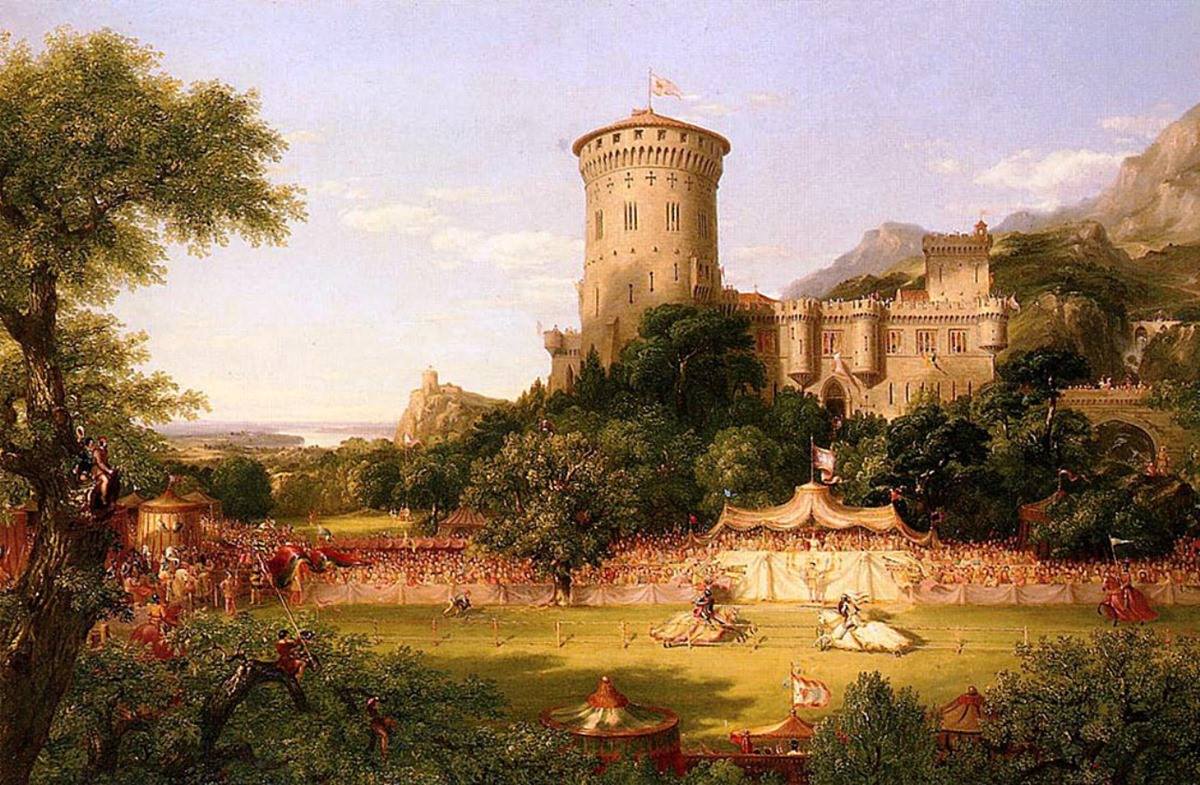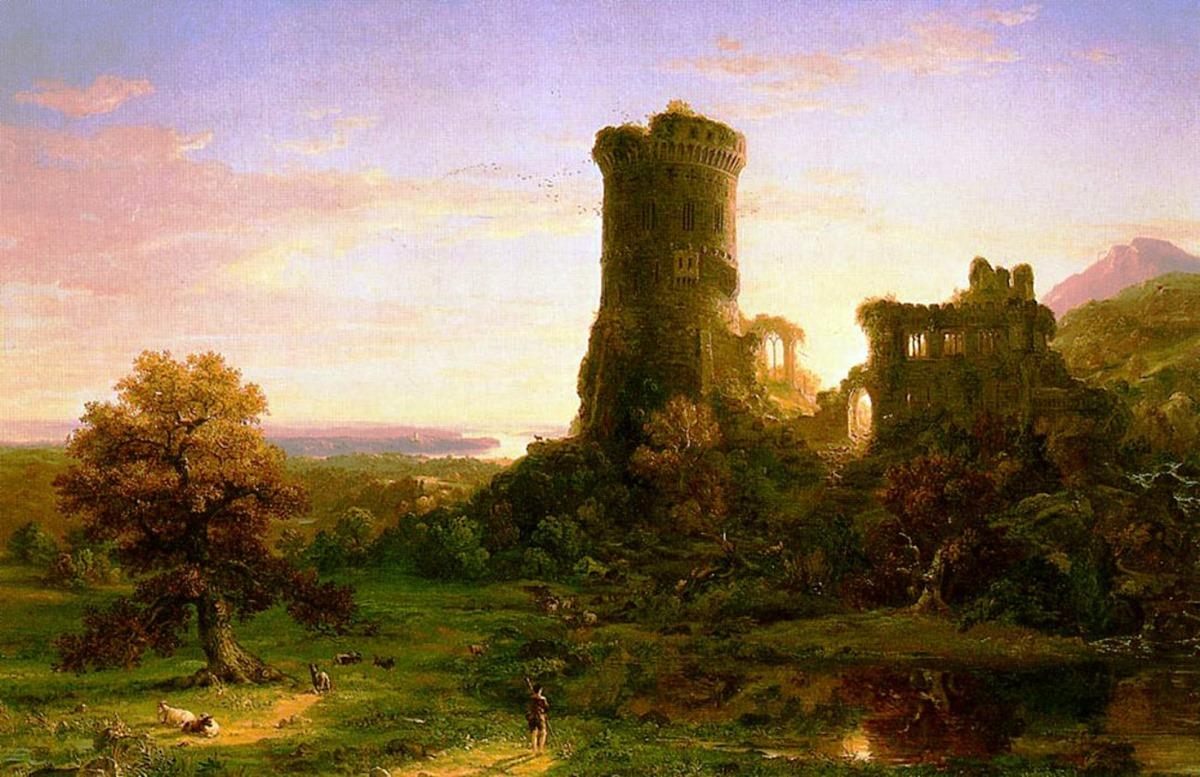
All of us have different stories of how we came to embrace Kinism. I would like to share my own. Many emotions accompany the discovery of race realism and ethnonationalism from a Christian perspective. Over the course of the last decade and a half I’ve experienced all of them. My journey to embracing Kinism came during my college years, but the foundation was laid from the very beginning of my life. I was born in 1984 and raised in central Illinois. I had the privilege of growing up in a Christian home and living in the same town as both sides of my grandparents. My town was a tight-knit community settled by Germans during the mid- to late-nineteenth century. In my sheltered early life I appreciated the happiness that my childhood brought me, but I never fully understood the role that ethnic and religious homogeneity played in my community. As I entered high school I had immersed myself in Christian history. I was enamored of Charlemagne and the Christian conquest and conversion of Europe. I appreciated the salutary role that Christianity played in Western Civilization.
As my interest in Christian tradition developed, I became interested in politics and the theory of statecraft. Eventually this led to my discovery of Little Geneva after reading the tagline, “If you’re not a Reformed Confederate Theocrat, we’ll be happy to screw your head on straight.” I couldn’t resist. Little Geneva, and its later incarnation as Spirit, Water, Blood, opened my eyes to many new (and paradoxically very old) ideas. The biblical case for Kinism, race realism, and ethnonationalism was defended with clear and robust arguments. My initial reaction to this discovery was elation. I was thrilled to have discovered the truth about these important topics which seemed to help tie my worldview together in a coherent way. The intrinsic feeling of connection that I experienced towards people like me was grounded in biblical truth about how God designed us. My embrace of Kinism during my formative years piqued my interest in European history, ethnology, literature, cuisine, and accomplishments.
My initial euphoria was not to last. As ecstatic as I was to discover the truth of Kinism and embrace my white heritage, I was confronted with unsettling realities. By embracing Kinism and learning about the history of my European ancestors I saw the world as it ought to be. But it didn’t take long for me to understand the perils that white people face in today’s hostile world. White people are openly targeted by non-white criminals as victims of robbery, rape, assault, and murder. The mainstream media, academia, and entertainment industries all collude to promote the anti-white narrative of whites as history’s evil villains. The current deluge of non-white immigrants into the West will mean the end of white countries within decades. I have found refuge on social media with like-minded people, and for that I am most grateful. But the reality is that Kinists and white advocates in general have a mountain to climb. In many cases all that remains of the past are the remnants of great civilizations that have all but entirely collapsed. Dwelling among the ruins and contemplating the beauty that has been lost can certainly be depressing. The best way to describe experience is the German word Weltschmerz, defined as “mental depression or apathy caused by comparison of the actual state of the world with an ideal state.” It is only natural for Christians to experience this distress in the modern world.

The Matrix illustration of the red pill vs. the blue pill is fittingly appropriated in order to explain the willingness, or lack thereof, of people to incorporate unsettling information into their worldview. To embrace race realism and Christian nationalism in the context of the twenty-first century is to take the red pill. Our opposition is thoroughly blue-pilled in that they suppress the truth about race and the Christian doctrine of nationhood in order to live a more comfortable existence in a world that is hostile to the survival of white people. I discovered the harsh realities of just how “blue-pilled” most people are during my efforts to raise awareness of the problems that white people face. My frustration grew exponentially as my efforts to explain my newfound discoveries to friends and family failed in many cases to convince them of the dangers that whites face or the truth of Kinism. During my college years I witnessed firsthand the virtually insurmountable difficulties that we face in our quest for white survival.
I’m confident that many readers of Faith and Heritage can relate to my experiences. I would like to relate how I have used my experiences and the accompanying emotions for constructive pursuits. First, in my reading of history I have come to acknowledge that my understanding of the past during my early formative years was a tad on the romantic side. I used to envision the past up until the past several decades as something out of an Edmund Blair Leighton, Frank Dicksee, or John William Waterhouse painting. My views have matured after reading a good deal of history, and I now realize that the past has witnessed fratricidal conflict, cruelty, corruption, and numerous tragedies. I’m thankful that I don’t have to struggle with the difficulties of pioneer life or the high infant mortality rates of the past.
Our ancestors didn’t have to contend with cultural Marxism, but they had plenty of trials to overcome. This isn’t to say that I don’t value the past. On the contrary, I admire my ancestors all the more for their achievements under what were commonly difficult circumstances, to say the least. What makes our ancestors’ accomplishments so remarkable is that they overcame great obstacles. Legendary warriors won victory against stronger opponents and virtually impossible odds. The pioneers tamed the wilderness filled with dangerous wild animals, perilous weather, and hostile savages. Brilliant scientists made amazing discoveries without the benefits of modern technology. Famous composers, authors, sculptors, and artists honed their craft over their entire lifetime, and we still admire their work to this day.
My advice for Kinists who experience melancholy over modernity is to view our current civilizational crisis as an opportunity to achieve something truly great. I am all too often tempted into believing that my efforts, as well as those of my fellow Kinists, are in vain, but this isn’t the case. As Christians we know that Christ has already won the battle over death and the Devil. This means that eventually Christian ethnonationalism will be victorious as the whole world will come under Christ’s authority and Law. Perhaps we will one day witness the victory of nationalism over globalism and multiculturalism. Like our ancestors, we can earn renown for seizing victory against impossible odds. We live at a pivotal point in history. By the grace of God, we have been given the chance to help stem the tide of modernity and deliver our people from impending destruction.
I can relate to William Wallace as he is portrayed in Braveheart in which he states that being a warrior was not his desire. He wanted to live a peaceful life in the Scottish countryside with his wife so that he could farm and raise a family, and this is the aspiration of any honest man. While we may not be called to lead men in battle or make the ultimate sacrifice of our own life as Wallace did, we are all called to make real sacrifices in the service of God and for the sake of our civilization. We ought to embrace this opportunity to forge a reputation that will last beyond our lifetimes. We can do our small but eternally significant part in defeating modernity by marrying and raising a family in the fear and admonition of the Lord. We can do what we can to spread the Gospel, encourage obedience to God’s Law as the abiding standard of justice, and teach Kinism as the application of God’s Law to the doctrine of nationhood. All bad things will come to an end, and the ruins of the past will be rebuilt (Is. 58:12). All of the good things that we have missed out on due to modernity – and much more – are awaiting us when we receive our heavenly reward. Our quest towards eternity will take us through many trials, but we have every assurance of overcoming them. Someday we will reflect on the dire circumstances of the early twenty-first century, and it will make our victory all the sweeter.

| Tweet |
|
|
|




